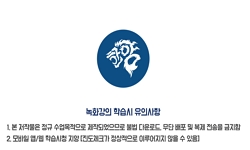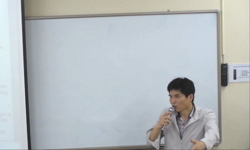This thesis examines the history and contents of the restrictions on shareholders’ voting rights when appointing or dismissing auditors or members of the audit committee under the Commercial Act, as well as their problems. Since the enactment of ...
http://chineseinput.net/에서 pinyin(병음)방식으로 중국어를 변환할 수 있습니다.
변환된 중국어를 복사하여 사용하시면 됩니다.
- 中文 을 입력하시려면 zhongwen을 입력하시고 space를누르시면됩니다.
- 北京 을 입력하시려면 beijing을 입력하시고 space를 누르시면 됩니다.
https://www.riss.kr/link?id=A107872097
- 저자
- 발행기관
- 학술지명
- 권호사항
-
발행연도
2021
-
작성언어
Korean
-
주제어
감사 ; 감사위원회 ; 감사위원 ; 이사회 ; 의결권 ; 최대주주 ; 일괄선출 ; 분리선출 ; Auditor ; Audit Committee ; Audit Committee Member ; Board of Directors ; Voting Rights ; Largest Shareholder ; Batch Election ; Separate Election
-
등재정보
KCI등재
-
자료형태
학술저널
-
수록면
93-115(23쪽)
- 제공처
-
0
상세조회 -
0
다운로드
부가정보
다국어 초록 (Multilingual Abstract)
This thesis examines the history and contents of the restrictions on shareholders’ voting rights when appointing or dismissing auditors or members of the audit committee under the Commercial Act, as well as their problems.
Since the enactment of the Korean Commercial Act in 1962, in order to suppress the influence of large shareholders, voting rights have been restricted for stocks owned by more than 3% of the total number of issued stocks at the time of appointment of auditors. And after the introduction of the audit committee system in the revised Commercial Act in 1999, through several amendments to the Commercial Act, currently the voting rights of shareholders are restricted in various ways at the general meeting of shareholders regarding the appointment and dismissal of auditors, standing auditors, audit committee members who are outside directors, and audit committee members who are not outside directors, depending on whether they are listed or not and the size of the company.
However, even if the Commercial Act restricts the voting rights of shareholders at the time of appointment or dismissal of auditors or members of the audit committee in order to secure independence of auditors or members of the audit committee from the major shareholder, there is no reasonable basis for restricting voting rights to 3% of the total number of issued shares, and it violates the principle of one share, one vote and the principle of majority vote to restrict the exercise of voting rights at 3% of the total number of issued shares regardless of the number of shares or the holding ratio owned by shareholders, and is excessive restrictions on the exercise of property rights by shareholders.
The Commercial Act requires that audit committee members of a listed company with total assets of 100 billion won or more be appointed at a general meeting of shareholders. However, since the audit committee members under the Commercial Act are members of a committee within the board of directors, the election of audit committee members at a general meeting of shareholders does not match the legal nature of the audit committee.
According to the Commercial Act, when an auditor or a standing auditor of a listed company is appointed or dismissed, or an audit committee member who is not an outside director is appointed or dismissed in a listed company with total assets of 100 billion won or more, the voting rights of the shares in excess of 3% of the total number of issued shares held by the largest shareholder and its specially related persons, cannot be exercised. However, the restriction on voting rights of shares exceeding 3% of the total number of issued shares owned by the largest shareholder and its specially related persons may result in reverse discrimination of the largest shareholder by not applying to other shareholders.
In addition, the Commercial Act requires listed companies with total assets of 100 billion won or more to elect at least one director who will be a member of the audit committee by a separate election method. However, restricting the voting rights of shareholders of shares exceeding 3% of the total number of issued shares by a separate election method when appointing a director who becomes an audit committee member excessively restricts the exercise of property rights and distorts the control rights based on the shareholder’s equity ratio.
Shares owned by shareholders exceeding 3% of the total number of issued shares at the time of appointment of an auditor are included in the total number of issued shares, but are not included in the number of voting rights of shareholders present (Article 371 (2) Commercial Act). If the shareholders own more than 78% of the total issued stock, it is difficult to meet the quorum required for the appointment of an auditor. In this case, the inability to meet the quorum for a general resolution is not only due to the current Commercial Act regulations on the calcula
목차 (Table of Contents)
- Ⅰ. 서설
- Ⅱ. 상법상 감사제도의 연혁
- Ⅲ. 감사·감사위원의 선임·해임 시 의결권 제한과 그 문제점
- Ⅳ. 결어
- 참고문헌
- Ⅰ. 서설
- Ⅱ. 상법상 감사제도의 연혁
- Ⅲ. 감사·감사위원의 선임·해임 시 의결권 제한과 그 문제점
- Ⅳ. 결어
- 참고문헌
- Abstract
동일학술지(권/호) 다른 논문
-
자본시장법상 공매도(Short Sale)의 법적규제에 관한 고찰 -공매도의 잔고보고, 공시 및 위반행위자에 대한 조치 중심으로-
- 한양법학회
- 김영록(Kim, Young-Lok)
- 2021
- KCI등재
-
- 한양법학회
- 고형석(Ko, Hyoung-Suk)
- 2021
- KCI등재
-
- 한양법학회
- 오성근(Oh, Sung-Keun)
- 2021
- KCI등재
-
추완청구권에 관한 소고 - 독일에서의 논의를 중심으로 -
- 한양법학회
- 김성필(Kim, Sung-Pill)
- 2021
- KCI등재





 DBpia
DBpia






